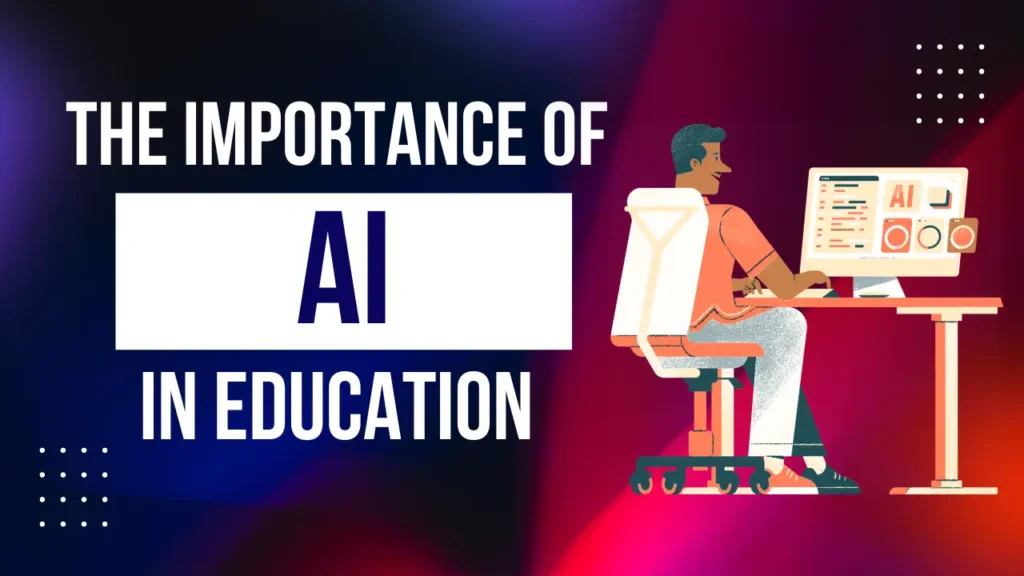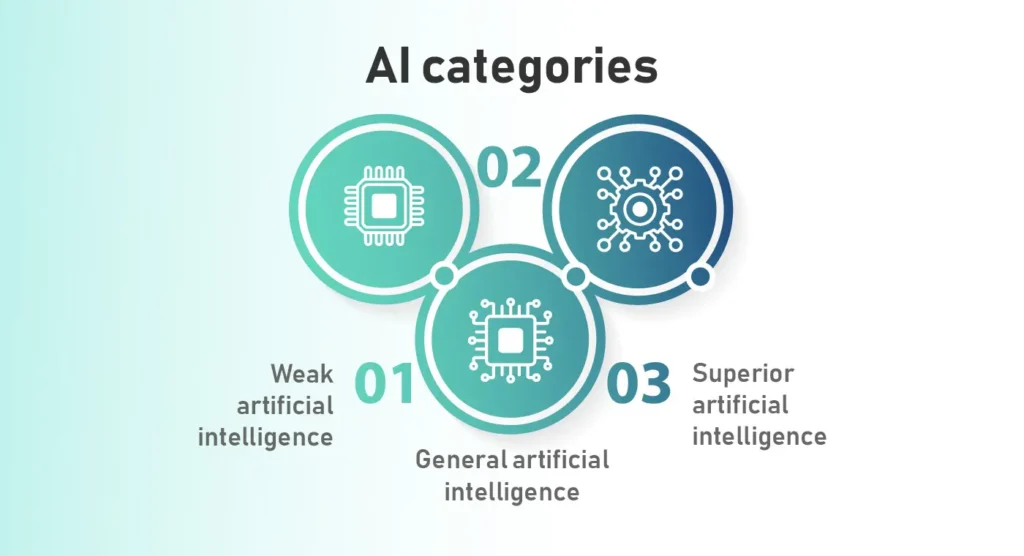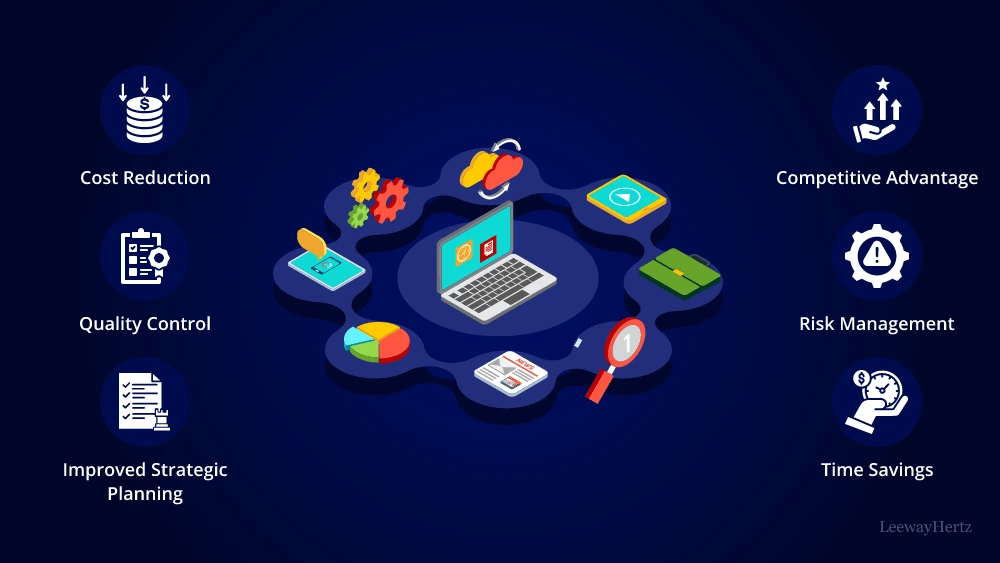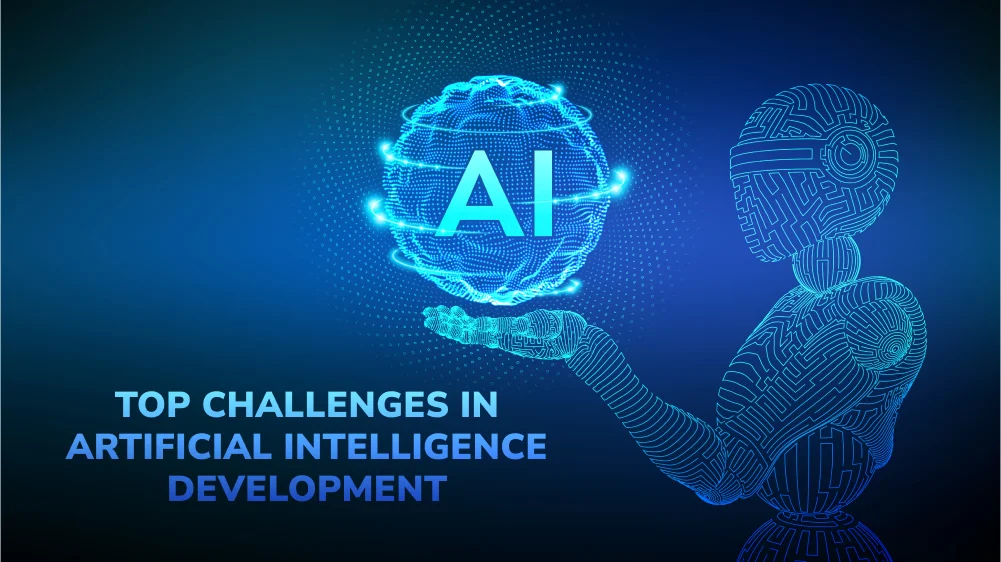Importance of AI

Artificial intelligence is an issue that we cannot take seriously in the world today; it perhaps brings more excitement than any other fantasy gadget in the current technological world. It would revolutionise industries, change the way chores are carried out, and influence our lives in the years to come.
From basic chatbots to highly efficient modes of transportation such as self-driving cars, AI systems are no longer a figment of imagination but simply a common practice within our lifetime. What is the importance of AI, and why does one consider it an integral part of today’s technological era? This article will explore these questions and other related aspects more fully, including the application of the various forms of AI, the advantages, and even the change it brings to society.
What is intelligent artificial intelligence? Is it applied to robots?
It is against this background that a clear understanding of what importance AI refers to takes place. In particular, artificial intelligence can be defined as a mechanism that acts solely as a recasting of human cognitive processes for non-human purposes. The performance of these machines includes problem-solving and decision-making, speech recognition, and language comprehension, which are all tasks that a normal human being is capable of accomplishing.
1.1 AI Categories

Weak AI: These are systems that are designed to perform one task only, like facial recognition or translation. They may be useful in certain operations with definite parameters but will not be quite useful outside these parameters.
Strong AI: A generalised theoretical artificial intelligence system that at least would have the ability to learn a vast array of knowledge and utilise it in various applications, like a human being.
Imagined Positive Super-Intelligent AI: As the theoretical final phase of AI development, there is superintelligence of this type, which is anticipated to be the most extreme form of intelligence than the human race. In films, AIs with these levels of superintelligence are depicted as being more able to reason, strategize, and do any chore than human beings.
AI Relation to the Contemporary World
Artificial intelligence technologies find their applications at the centre of modern technological advancements, which are enhancing productivity in various areas. It enhances the performance of search engines, social media platforms, and devices with voice interactions like Alex and Siri
2.1 AI in Daily Life
Smartphones: Considering the viewpoint of a consumer who uses a smartphone, AI is a functionality found embedded in such devices, thus making them smarter. It functions more covertly, from suggesting things to editing pictures in a bid to better the user’s experience.
Virtual Assistants: These include Siri, Google Assistant, Alexa, and many more; these are just a few of the AI systems that make life easier as they help to manage workloads, retrieve information, or control appliances within the house or remotely.
Social Media: The platform uses AI tools to determine how your feeds would look and which applications, such as Facebook, Instagram, or TikTok, they would be in. They do this based on your interests and interactions.
Benefits of AI in Business

It goes without saying that AI technology is a must-have for every business. It gives the organisation the possibility to increase and gain in productivity, cut operating costs, and also make decisions that were hard to make at other times.
3.1 Enhanced Decisions
Considering the immense speed at which AI can analyse a lot of data, one can suggest its great impact in improving decision-making in business. Predictive analytics is an AI target that enables business organisations to identify trends and buyer behaviours before they get too competitive.
3 Type 2: Automated Repetitive Tasks
Especially in routine calls like data entry, customer service enquiries, and even financial transactions with human beings—all reduce the need for people employees to do any of this so that most organisations can focus on strategic work. It is more reliable and also completely gets rid of human error.
3.3 Customised Customer Experiences
And the outcome is that thanks to AI, organisations can provide customised experiences to their customers. For instance, a recommendation engine from Netflix or Amazon uses the activity of a single individual to suggest what movies, shows, or products this person will probably want based on his individual needs and preferences for maximum customer satisfaction and fidelity.
4. Importance of AI in Healthcare
Among all the uses of AI that have the potential to save lives and revolutionise patient care, the healthcare industry is arguably the most significant.
4.1 Identification and Management
AI machines can process medical records and help doctors diagnose diseases much more accurately and in less time. For instance, AI can be of great help to identify the patterns of medical imaging, be it X-ray or MRI, which the human eye mainly fails to detect.
4.2 Predictive Healthcare
AI can predict outbreaks of a specific disease, the patient’s readmission rates, and even the possibility of emerging with a particular condition from the data of previous events. The ability to perform predictive actions ensures a better outcome for patients.
4.3 Robotic Surgery
The increased use of AI in robotic systems ensures that surgical operations will be a lot more precise, meaning complications from their end are out of the question. This kind of system helps surgeons perform roles that require great accuracy, which in turn enhances the overall outcomes of complex surgeries.
5. AI in Finance
Finance has been one of the fastest industries to adapt to AI inventions because the latter have helped the former to improve their processes, manage risks, and enhance the situation for their customers.
5.1 Fraud Detection
AI algorithms can almost instantly detect anomalies from the transaction data and inform such institutions of likely fraud in real-time. This protects such institutions as well as their customers from cybercriminals.
5.2 Algorithmic Trading
AI applies it in the share and stock market, where it has the ability to digest a large amount of data on the market and attempts to make purchases or sell shares at some certain time. Algorithmic trading is generally quicker and in many instances more accurate than the trades which are conducted by a human trader
6. AI in Education
Listing how AI is transforming education, Harrison stated the following: AI transforms learning into personal and administrative.
6.1 Personalised Learning
By means of AI, all children can be taught at the same time as learners, as the software adapts to the rate at which the child can learn and the learning style preferred most. It also helps students to understand and even reinforce what they have learnt easily.
6.2 Administrative Tasks
Right from correcting assignments, managing students’ data, and so on and so forth, AI assists the educator in having ample time to teach and even interact with the students.
6.3 Intelligent Tutoring Systems
In the context of exiting the class, artificial intelligence tutoring systems assist the students by offering covet solutions and expounding problems and answering questions.
To him, it would be easier for the institutional side to offer account balances, transactions and even financial advice from the chatbot with the use of AI. Can provide instant response minimise service time and hence contribute to more efficiency and accuracy.
7. Ethical Issues in AI
However, it is worth noting that AI has a lot of profits, but it also created several ethical problems that need to be solved for AI to be used effectively.
7.1 Data Privacy Concerns
Big data has been the main motivation behind leveraging AI. However, managing and processing such colossal data involve data that are often very personal and personal indeed. basic problem emerges as data privacy since personal data may be abused.
7.2 Bias in AI
Bias means that a system will produce unfair and prejudiced outcomes in an output because it presents a direct mirage of bias in the training dataset. Therefore, if the AI systems are to learn the best habits and traits of everyone, their training database should have balanced samples from the developers.
7.3 Job Displacement
Thus, AI has a problem of widening the availability of automation for different jobs. Therefore, the new opportunities that AI brings also contribute to the possibility of the automation of human practices typically conducted at work; hence, a request to embrace the new skills among the workers.
8. Top Future of AI
AI’s future is as exciting as it is unclear, which is the nature of the future in the contexts of such diversified and fast-developing field. The more developed the technology would further be, so would AI be integrated into life, further expanding horizons and creating new issues.
8.1 AI and Self-Drive Cars
There is much potential in the use of AI for self-driving cars. These automobiles will not only provide the means to travel without an accident happening but will also add to the easing of traffic and aid people who are unable to drive.
8.2 AI in Space Exploration
AI is central to space exploration because it is used during the missions of moving through space, as well as the analysis of the massive data being received from space missions and even in search for extraterrestrial life.
8.3 Application of artificial intelligence for sustainable development
AI can help people make the world save resources, reduce wastes, and use energy effectively. It can make the future world smart in smart grid, smart maintenance in manufacturing and other areas.
9. Challenges in AI Development

On one side of the globe, the world is embracing the application of AI technology; however, the development faces significant constraints. These are technical constraints touching on ethical practices and regulatory frameworks, among others.
9.1 Technical Limitations
The strength of an AI system is directly proportioned to the strength of the training information. This will lead to poor or even biassed prediction, which in turn leads to poor performance of the same and is a setback to the full-scale integration of AI implementations.
9.2 Enhancement of ethics and regulations
Artificial intelligence will be so endurable that a question related to ethical utilisation of AI will arise as a major issue. Government and institutions are now trying to establish legal frameworks to provide the optimal use of artificial intelligence.
9.3 New requirement of supervision
It is impossible to open artificial intelligence and set it free. The importance of AI systems is that they have to make sound ethical decisions and otherwise be reliably understandable with supervision from humans.
10. Conclusion
Just as none of us can escape the fact that we live in the world today, we cannot escape the fact that the role of AI and its importance in our world is too huge. Among these components, AI plays an essential role in facilitating transformation in technology on a daily basis to shape the future. Nonetheless, the threats will act as barriers to decision-making in the effects that AI poses to some cultures, ethical issues, technical constraints, and regulatory requirements. The idea that the possibilities are bright further casts an affirmative obligation upon us to strive towards the positive use and advancement in importance of AI for human benefit without greed or selfish concealed motives.
Frequently Asked Questions
1. How is Artificial intelligence changing the world?
Artificial Intelligence offers in the lives of its users an intelligent version of devices that operates and learns, virtual assistants, a customised social media news feed, and much more in terms of convenient technologies for making life easier and more productive in all its ways.
2. What is ethical about the importance of AI?
Some of the main issues of ethical concerns are privacy and security, biassed decision-making by the importance of AI, and high incidence of unemployment by the use of new technologies enabled by AI.
3. What is the positive impact that the importance of AI is able to bring to the medical industry?
The importance of AI has improved health in several ways, including high precision of diagnosis, ability to predict the results of patients, and high level of surgical operations using robotic systems aided by AI.
4. Will the importance of AI replace jobs?
Despite the fact that the importance of AI may theoretically